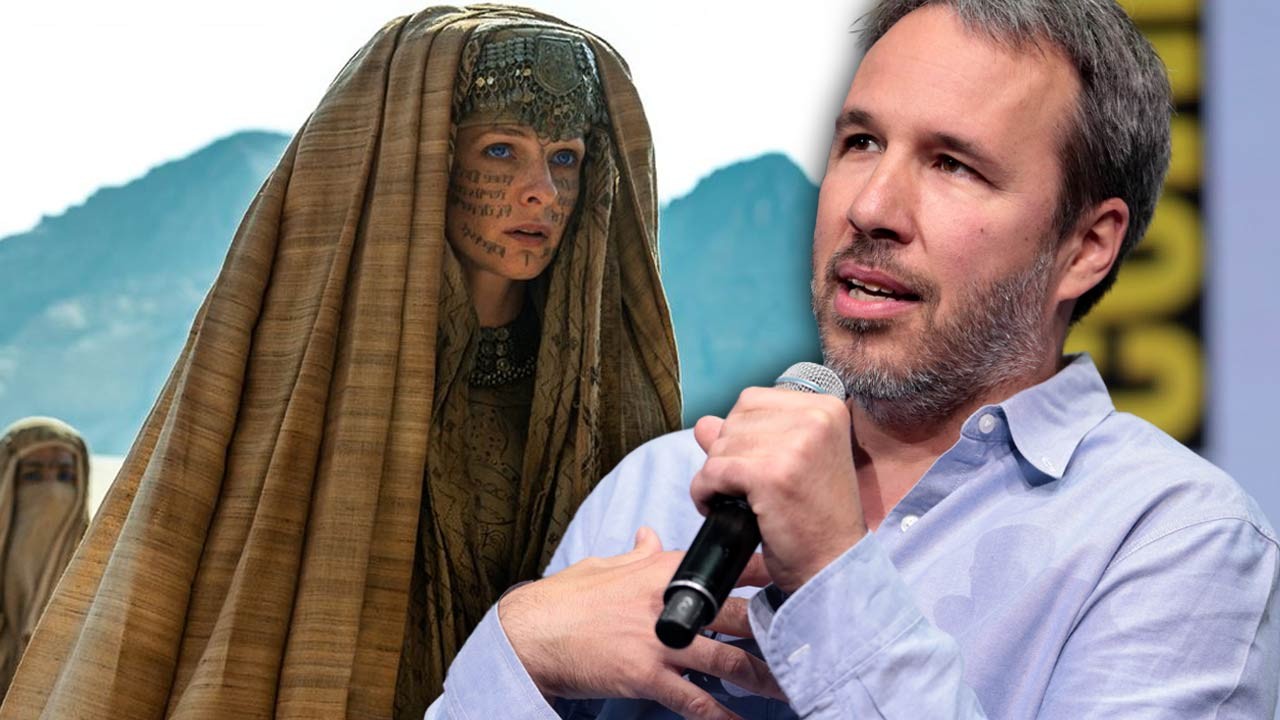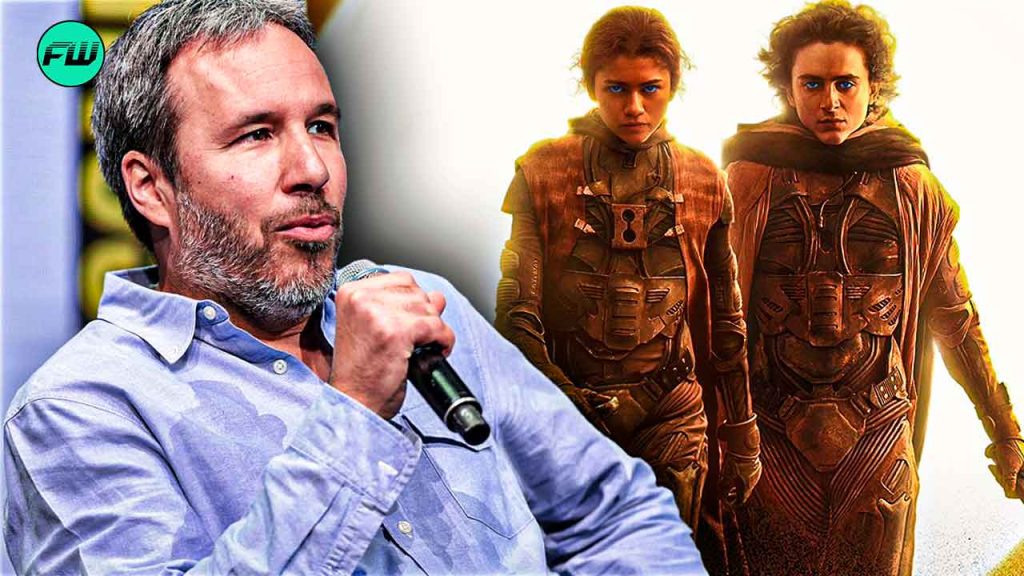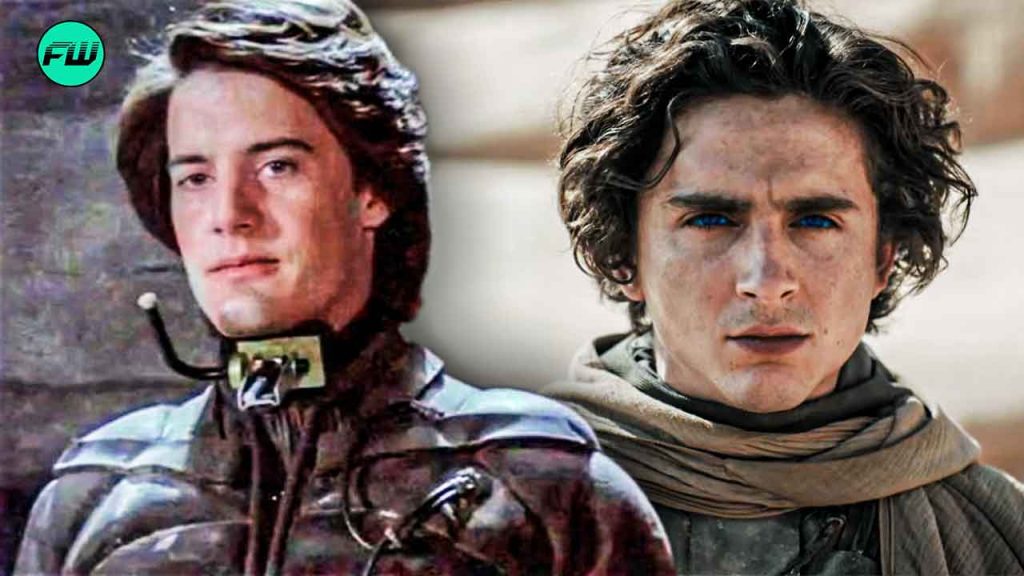For a universe that lies thousands of years in the future, it becomes important to honor the past and learn the history of oneʼs lineage and inheritance. This is where Dune: Prophecy comes in to teach us the lores and mythologies that build the exceptionally vast universe of Frank Herbertʼs Dune. The 1965 novel that set a precedent for science fiction and dystopia has now been adapted by Warner Bros. for a television adaptation following the massive success of Denis Villeneuveʼs epic franchise.
![Rebecca Ferguson as Lady Jessica Atreides in Dune [Credit Warner Bros. Pictures]](https://fwmedia.fandomwire.com/wp-content/uploads/2024/05/15133006/Rebecca-Ferguson-as-Lady-Jessica-Atreides-in-Dune-Credit-Warner-Bros.-Pictures.jpg)
Dune: Prophecy Sets the Audienceʼs Mind in a State of Panic
The legacy of Frank Herbertʼs Dune is untouchable at its core. However, the same cannot be said for Denis Villeneuveʼs adaptation of the same. Constructed from the lores established in Herbertʼs novel, as a filmmaker, Villeneuve has to bear in mind that the audience needs him to adapt and stay true to the source text while delivering an entertaining and enriching version of the universe on film.
![Dune: Prophecy [Credit: Max]](https://fwmedia.fandomwire.com/wp-content/uploads/2024/05/15133141/Dune-Prophecy-Credit-Max.jpg)
Moreover, the timing of Dune: Prophecy is not doing Max (and in turn, Warner Bros.) any favors due to the formulaic and predictable act of green-lighting spin-offs, prequels, and series adaptations so soon after the critical and commercial success of Villeneuveʼs films.
The motive behind the making of Dune: Prophecy gets called into question – is it truly necessary to learn the Bene Gesseritʼs past 10,000 years before Paulʼs existence or is Prophecy just another cash grab quickie that serves to benefit the studio more than it does the audience? The dubious, suspicious, and sudden arrival of the prequel thus justifiably sparks widespread panic among fans who have grown to love and treasure the latest cinematic adaptations of Frank Herbertʼs novels.
Dune: Prophecy Must Learn From the Errors of Marvelʼs Past
![Timothée Chalamet and Zendaya in Dune: Part Two (2023) [Credit: Warner Bros. Pictures]](https://fwmedia.fandomwire.com/wp-content/uploads/2024/05/15132814/Dune-Part-Two-2023-scaled.jpg)
Marvel Studios, in the years following Avengers: Endgame committed a similarly atrocious act of setting itself loose on the Disney+ platform, releasing properties faster than the fans could consume and in quantities that made the audience feel like they were chores instead of entertainment. The studioʼs policy of quantity over quality led to the downfall of a once-great industry after “Superhero fatigue” began to set in universally across every demography.
Warner Bros.ʼ call to expand Frank Herbertʼs Dune universe will work only if the studio bears in mind that quality always takes precedence over quantity. As such, the series could serve to laterally explore the Bene Tleilax (or, the Tleilaxu) who are known for their power-hungry and enriching history, technological evolution in cloning, espionage, and ultimate goal of universal domination.
![Rebecca Ferguson as Reverend Mother in Dune Part Two [Credit Warner Bros. Pictures]](https://fwmedia.fandomwire.com/wp-content/uploads/2024/05/15133017/Rebecca-Ferguson-as-Reverend-Mother-in-Dune-Part-Two-Credit-Warner-Bros.-Pictures-1.jpeg)
However, if the studio indeed falls prey to the greed of revenue and profits over creative and artistic satisfaction, Warner Bros. risks endangering Denis Villeneuveʼs legacy with their corporate methods that have turned so many Hollywood auteurs against the modern studio system and streaming platforms.
Dune: Prophecy premieres on Max this fall. Watch the trailer here.




